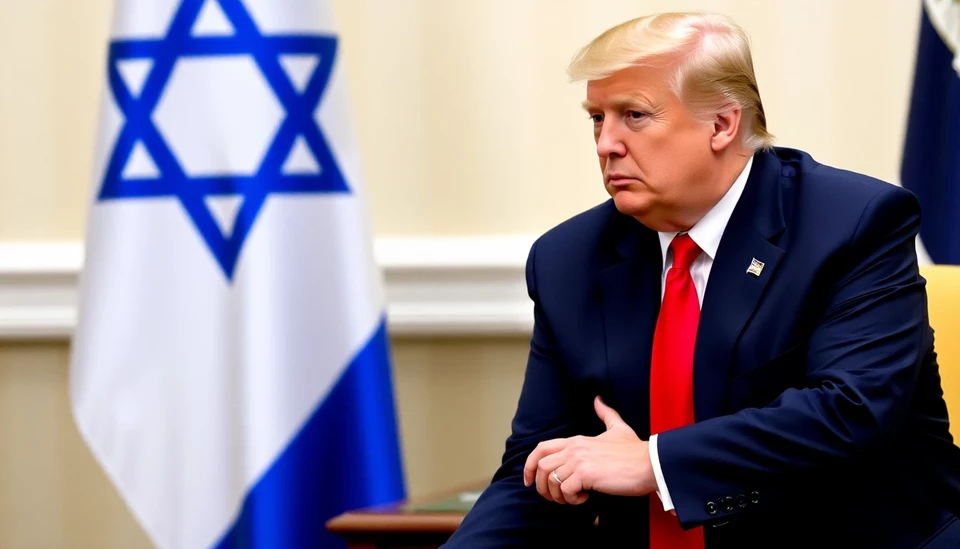
In a highly anticipated diplomatic meeting, former President Donald Trump is set to confront a pivotal moment for his controversial tariff policies as he engages with Israeli Prime Minister Benjamin Netanyahu. This meeting is seen as a significant test of Trump's approach to trade relations, particularly as it pertains to U.S. tariffs on goods from various countries, including those from Israel.
Trump, who has long advocated for protectionist measures to bolster American industries, is expected to discuss concerns surrounding trade imbalances and the impact of tariffs on global allies. The meeting is particularly crucial given Israel's reliance on exports and the strategic economic ties that exist between the U.S. and Israel.
During the meeting, topics on the table will likely include the Israeli economy's current state, potential new trade agreements, and how the U.S. tariffs on steel and aluminum—measures initially implemented in 2018—continue to affect Israeli trade exports. With global economic conditions ever-changing, both leaders hold much to gain from a mutually beneficial arrangement that acknowledges the delicate balance of protectionism and free trade.
This high-stakes engagement comes at a time when Trump is seeking to reassert his influence on the international stage, particularly among allies who have felt the impacts of his administration’s trade policies. Netanyahu’s administration has been vocal about its desire to strengthen ties with the U.S., emphasizing the importance of robust trade relations that support the economies of both nations.
Critics of Trump's tariff policies argue that such measures can lead to retaliatory actions from affected countries, potentially sparking trade wars that may jeopardize not just diplomatic relationships but also economic stability. As the world watches closely, the outcomes of this meeting could very well set the tone for future trade negotiations, not only with Israel but also with other key partners in the region.
In the backdrop of this meeting, ongoing discussions about Israel’s technological advancements and 5G capabilities may come into play, further complicating the trade conversation as the U.S. seeks to safeguard its interests in technology and security. As the conversation unfolds, observers will be keenly attuned to how both leaders navigate these complex issues, especially given that successful diplomacy in this era often hinges on negotiating trade relations alongside political alliances.
The outcome of this meeting could signal a shift or a reinforcement of Trump's assertive trade policies. With the future of various industries hanging in the balance, the implications of this dialogue may resonate far beyond the immediate discussions, impacting everything from manufacturing jobs in the U.S. to technological cooperation with Israeli firms.
As the details of the meeting emerge, factors such as public opinion, economic indicators, and international responses will be essential in evaluating the effectiveness of Trump's approach to tariffs against the backdrop of contemporary geopolitical dynamics. The meeting with Netanyahu thus represents not simply a bilateral engagement but a crucial intersection of economics and diplomacy in a time of unpredictability.
As reports surface post-meeting, stakeholders from various sectors will undoubtedly analyze the results, which could redefine trade policy and global relationships for the foreseeable future.
#Trump #Netanyahu #Tariffs #TradePolicy #Israel #USRelations #Economics #Diplomacy
Author: Rachel Greene




